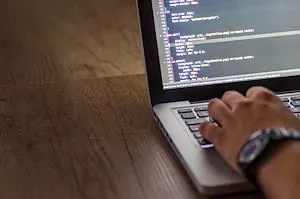Labor regulations of the Ministry of Labor during mandatory isolation
On March 20, 2020, Resolution 219/2020 of the Ministry of Labor, Employment and Social Security (the "Resolution") was published in the Official Gazette, regulating the scope of the isolation provided for by Decree of Need and Urgency No. 297/2020.

The Resolution states:
1. That the employees impacted by the “social, preventive and mandatory isolation” will be exempt from the duty of attending their workplace. However, when their tasks or other similar tasks can be carried out from the place of isolation, the employees must, within the context of contractual good faith, establish with their employer the conditions in which said work will be carried out. Those who effectively agree to this way of carrying out their tasks will receive their usual remuneration,
2. In those cases in which employees impacted by the isolation cannot carry out their tasks from the place of isolation, the amounts they receive will be non-remunerative, except for the withholdings and contributions to the Argentine health insurance system and to the Argentine Institute of Social Services for Retirees and Pensioners (“INSSJP”).
Consequently, with respect to those employees who do not work during isolation, employers must not withhold, estimate and pay withholdings and contributions, with the exception of:
i. Withholdings and contributions to the Argentine Health Insurance System (Healthcare Provider):
- Employer: 6%
- Employee: 3%
ii. Withholdings and contributions to the Argentine Institute of Social Services for Retirees and Pensioners (INSSJP):
- Employer: 1.58%
- Employee: 3%
The Argentine Tax Authority will arrange the necessary measures to verify the correct application of this provision.
3. Employees who provide services in the activities excepted from isolation, provided for in Section 6 of Decree 297/2020 (list extended by Administrative Decision 429/2020 of the Chief de Cabinet), will be considered “essential personnel” in the terms of Resolution 207 of the Ministry of Labor. The Resolution highlights that the continuity of the activities detailed in the mentioned standards constitute an exceptional requirement of the national economy (Section 203, Labor Contract Law).
4. The Resolution defines among the concept of employees the people who provide services continuously under non-dependent figures, such as service providers regulated by Decree No. 1109 of December 28, 2017; those others that are developed analogously within the private sector; tasks performed through scholarships and internships in workplaces; as well as medical residences set forth in Law No. 22,127; and cases of multiple employment or multiple recipients of services.
5. That the reorganization of the working day in order to guarantee the continuity of the production of the activities declared essential in adequate health conditions in accordance with the protocols established by the health authority, will be considered a reasonable exercise of the authority of the employer. The Resolution adds that overtime necessary for the compliance of these purposes will have a reduction of 95% of the aliquot provided in Section 19 of Law No. 27,541 that is allocated to the Argentine Integrated Social Security System (see conformation of aliquots in item 6 below).
6. Furthermore, the need to hire personnel while the “social, preventive and mandatory isolation” lasts must be considered extraordinary and temporary under the terms of Section 99 of the Labor Contract Law (Temporary Employment Contract). The salaries paid to employees hired for this period (that is, while the isolation provided by Decree 297/2020 lasts) under this modality, will have a reduction of 95% of the rate provided in Section 19 of Law No. 27,541 (employer contributions) to the Argentine Integrated Social Security System. In this sense, the rates of employer contributions in the context of this hiring will be:
- 1.02% (instead of 20.40%) for employers in the private sector whose activity is included in the commercial or services sector, with total annual sales that exceed the categorization limits as a mediumsized enterprise section 2.
- 0.9% (instead of 18%) for the remaining employers in the private and public sectors.
7. Employers must provide a certificate to be exhibited at request by police controls for personnel who must continue working in their place of work. The certificate must state the name, telephone number, address, and other information that allows for the proper identification of the company (or employer); name, ID number and address of the employee, and their qualification as essential personnel.
This Resolution is in force in the Argentine Republic since March 20, 2020.
This insight is a brief comment on legal news in Argentina; it does not purport to be an exhaustive analysis or to provide legal advice.